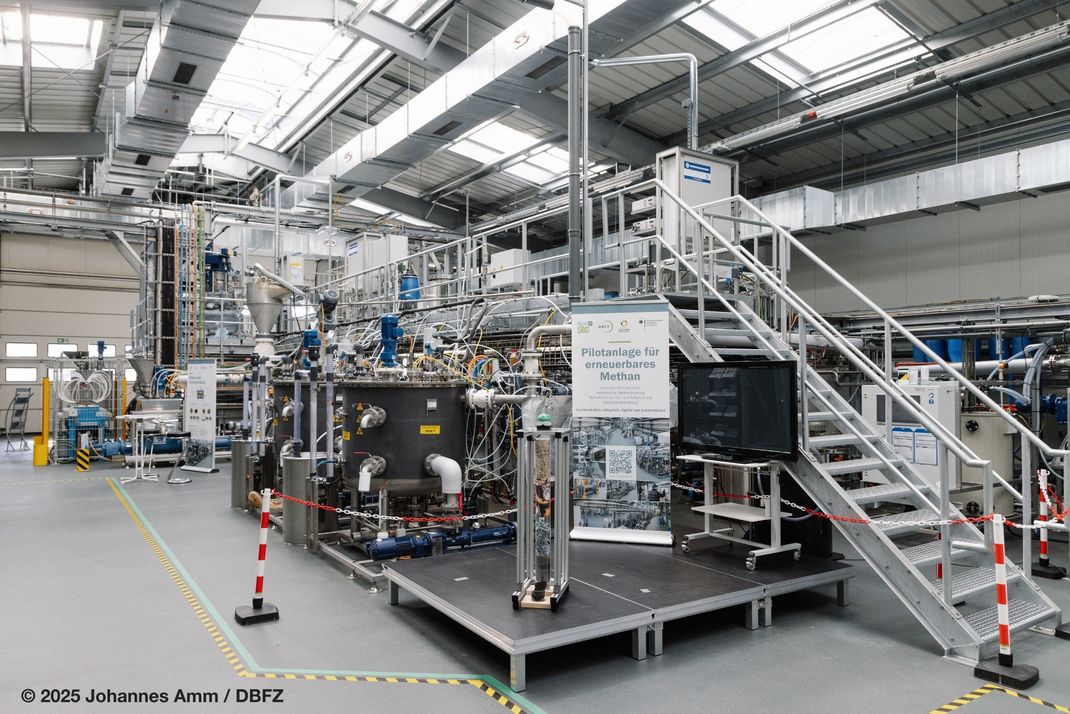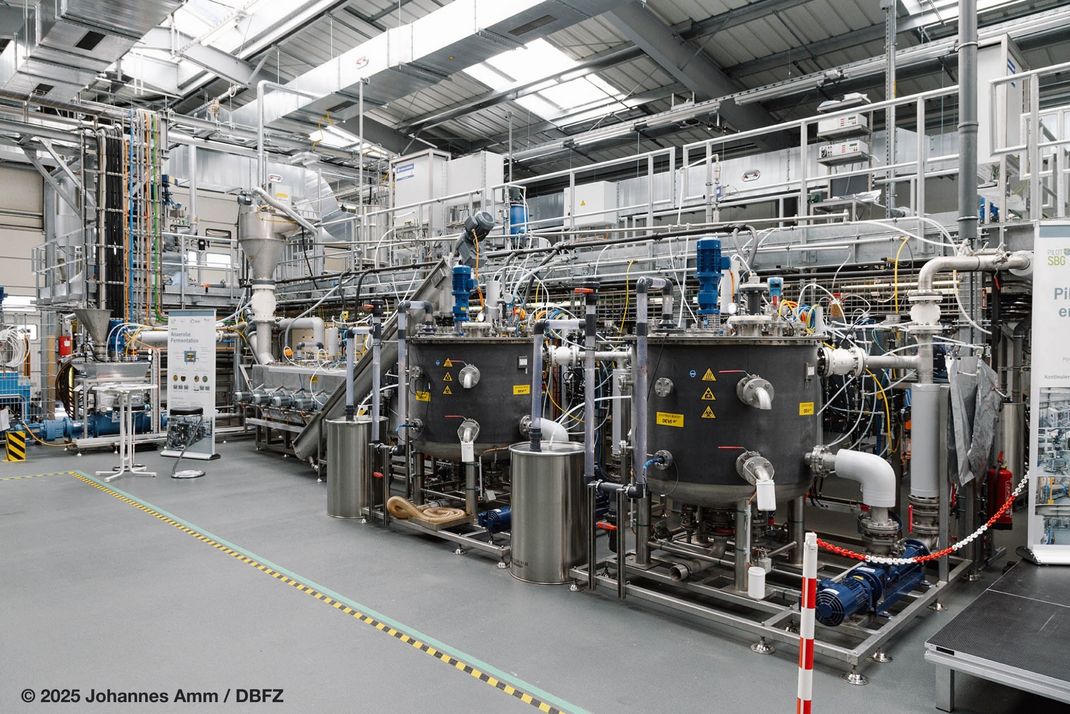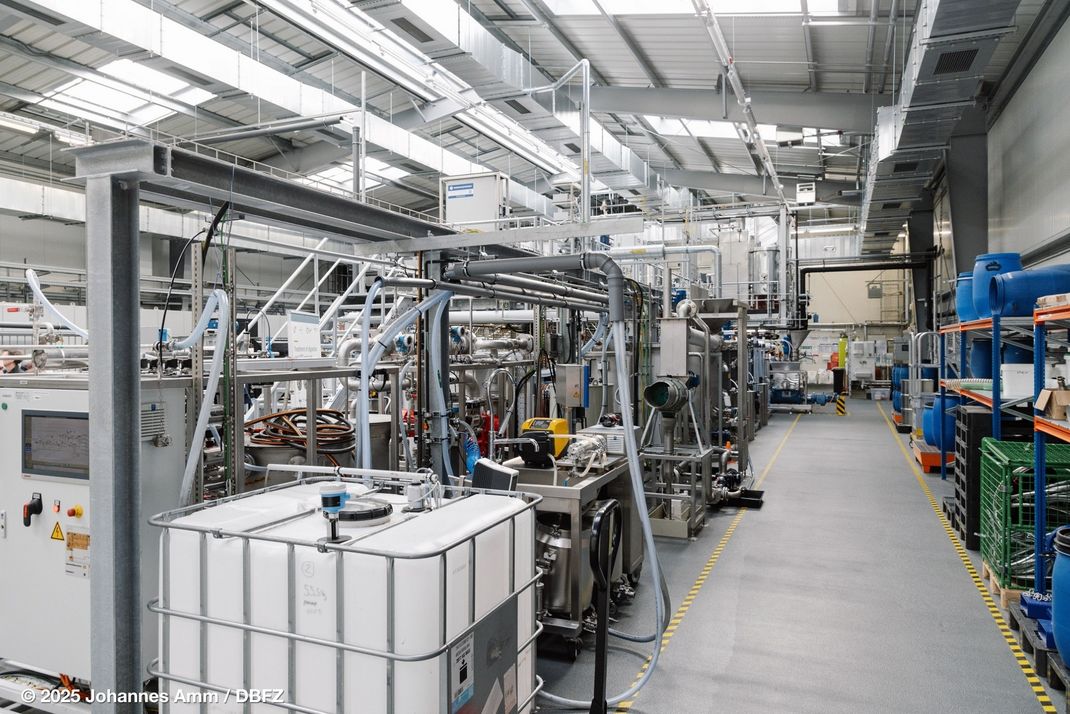Umwelt- und Ingenieurtechnik GmbH Dresden (UIT) successfully commissioned a unique pilot plant for renewable methane at the German Biomass Research Center (DBFZ) in Leipzig on March 18. The innovative plant, which was planned and constructed by UIT, uses biogenic residues, waste and green hydrogen to produce climate-friendly biomethane. With a total area of around 800 square meters, it represents significant progress in research into the provision of renewable energy sources for transport sectors that are difficult to electrify, such as heavy goods or shipping traffic.
Innovative technology for sustainable energy generation
The pilot plant at the DBFZ enables the efficient conversion of biogenic residues and waste into renewable methane. Using a multi-stage process - which combines anaerobic fermentation, hydrothermal pre- and post-processing and catalytic methanation - high-quality synthetic biogas is produced from organic materials and then available as a climate-friendly energy source.
The incoming substrate is first stored and cooled if necessary. This is followed by preconditioning which - depending on the requirements - includes shredding, mixing or precise dosing for the subsequent process. In an optional process step, the fresh substrate can be hydrothermally pretreated to increase fermentation efficiency.
The core process is the anaerobic fermentation of biomass to produce biogas, consisting of methane (CH₄) and carbon dioxide (CO₂). Catalytic methanation converts the CO₂ with hydrogen into pure synthetic methane - the plant's main product. Filtration aggregates enable the targeted repatriation or external use of by-products such as solid and liquid fertilizers as well as water in dischargeable quality. The fermentation residues can optionally be hydrothermally converted into hydrochar.
Technological systems control, coordinate and ensure the interaction of all sub-processes. The pilot plant's closed-loop recycling management system guarantees that all material flows are balanced and recycled, making the plant highly resource-efficient.
Tailored solutions for technical challenges
Scaling was a key challenge in the development of the plant. As the processes had to remain economical on a small level, industrial components such as pumps and valves were often too big dimensioned. The UIT engineering team overcame this challenge through numerous optimizations.
A great deal of attention was also paid to safety requirements in this project, which first became fully apparent during the progress of the project. Through iterative optimization and a steep learning curve, the team was able to meet all requirements.
In addition, the scientific environment of the pilot plant requires special planning, construction and documentation given that the results of the tests with the pilot plant are to be precisely evaluated and used. Based on the research results of the pilot plant in Leipzig biomethane can be used as a renewable energy source for transportation devices that are difficult to electrify, among other things.
Implementation by experienced plant engineers
Umwelt- und Ingenieurtechnik Dresden GmbH (UIT) won the tender to plan and construct the pilot plant for renewable methane. The Saxon company has been active in plant construction since it was founded in 1990 and has extensive experience in the planning and construction of biogas test plants and pilot plants.
UIT developed and manufactured the modules for substrate storage, substrate preparation, hydrothermal conversion, anaerobic fermentation as well as filtration and hydrogen recovery. In addition, UIT manufactured and installed all other technologies required to integrate the above-mentioned sub-processes into a coherent process chain and to ensure functional safety.
The core elements of the plant are two fermentation lines which process both wet and partially dry substrates as well as a large-scale reactor for hydrothermal carbonization.
The DBFZ pilot plant was launched at a celebratory event on March 18 and is now commencing research operations.
Further information regarding the pilot plant at: https://www.dbfz.de/en/projects/pilot-sbg/start





